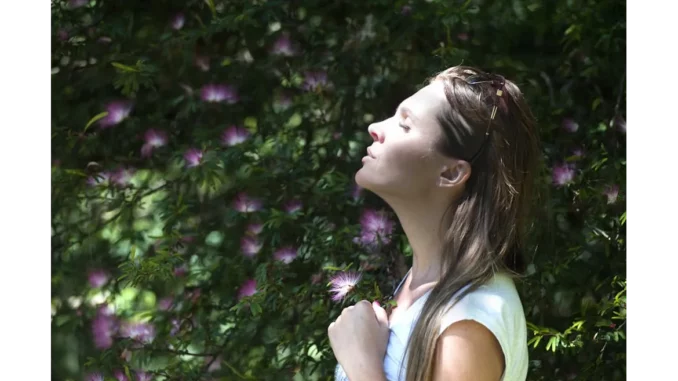
When I first met Emily Carter, she was sitting in a small, sunlit corner of her local café, radiating a calm presence that seemed at odds with the bustling environment around her. As a self-proclaimed overthinker, Emily had spent years wrestling with her racing thoughts, only recently finding solace in the art of meditation. Our conversation was a candid exploration into how meditation had transformed her life, offering actionable insights for those who find themselves similarly overwhelmed by incessant mental chatter.
Discover meditation in your home with custom spaces from Elegancia.homes.
“Before I started meditating,” Emily admitted, “my thoughts felt like an unstoppable river. I was constantly analysing past conversations, worrying about future events, and juggling endless to-do lists. The idea of meditation initially seemed impossible—how could I, of all people, sit still and not think?”
Emily’s journey into meditation began rather serendipitously. She attended a mindfulness workshop led by a friend, not expecting it to change her life. “I went in sceptical,” she laughed, “but I left intrigued. The instructor talked about meditation in a way that seemed accessible, even for someone like me who couldn’t stop thinking.”
Her initial attempts were, as she described, “comically frustrating.” Sitting in silence, Emily found herself bombarded by thoughts about dinner plans, work deadlines, and childhood memories she hadn’t thought about in years. “It felt more like a brainstorming session than meditation,” she confessed.
Determined to make it work, Emily began incorporating a few strategies that gradually helped her tame her mind. “The first thing I learned was to accept my thoughts rather than fight them,” she explained. “I used to get so frustrated when my mind wandered, but then I realised that acknowledging the thoughts and gently bringing my focus back was part of the practice.”
Emily also found that setting a dedicated space for meditation played a crucial role in her progress. “I live in a small flat, so I don’t have the luxury of a meditation room. But I set up a corner in my bedroom with a few cushions, a candle, and a plant. It became my little sanctuary.” This dedicated space provided a physical cue that helped her shift into a meditative mindset more easily.
One of the most transformative changes Emily made was taking her practice outdoors. Inspired by the 2019 study she came across, she started meditating in her local park. “Being outside was a game-changer,” she said with a smile. “The sounds of birds and the feeling of the wind were grounding. It was like nature was helping me find that inner calm.”
Emily also experimented with different meditation techniques until she found what resonated with her. “Guided meditations were a lifesaver at the start,” she noted. “Having someone talk me through the process helped keep my mind from wandering too far.” Over time, she transitioned into mindfulness breathing exercises, which she described as “simple but incredibly effective.”
Realistic goal-setting was another key component of Emily’s successful meditation practice. “I started with just five minutes a day,” she said. “It was manageable and didn’t feel overwhelming. As I got more comfortable, I gradually increased the time.” The incremental approach allowed her to establish a sustainable habit without the pressure of perfection.
Emily’s story is a testament to the accessibility of meditation for overthinkers. Her journey highlights that meditation doesn’t require a perfectly quiet mind but rather a willingness to engage with the process, imperfections and all. “It’s not about stopping your thoughts,” she emphasised. “It’s about creating space between them, finding moments of stillness in the chaos.”
As our conversation drew to a close, Emily shared a piece of advice that had stuck with her throughout her journey: “Be patient with yourself. Meditation is a practice, not a destination. Each session is different, and that’s okay.”
For anyone feeling overwhelmed by their thoughts, Emily’s experience suggests that meditation can indeed offer a pathway to peace. With patience, acceptance, and a few strategic adjustments, even the busiest minds can find moments of calm amid the storm.
Salena Ripley


Be the first to comment